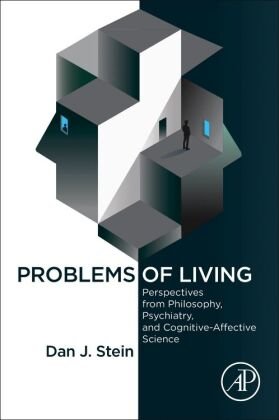Problems of Living: Perspectives from Philosophy, Psychiatry, and Cognitive-Affective Science addresses philosophical questions related to problems of living, including questions about the nature of the brain-mind, reason and emotion, happiness and suffering, goodness and truth, and the meaning of life. It draws on critical, pragmatic, and embodied realism as well as moral naturalism, and brings arguments from metaphysics, epistemology, and ethics together with data from cognitive-affective science. This multidisciplinary integrated approach provides a novel framework for considering not only the nature of mental disorders, but also broader issues in mental health, such as finding pleasure and purpose in life.

